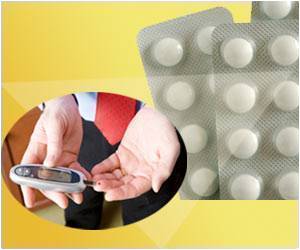- Pioglitazone - (https://medlineplus.gov/druginfo/meds/a699016.html#:)
- Implications of Removing Rosiglitazone’s Black Box Warning and Restricted Access Program on the Uptake of Thiazolidinediones and Dipeptidyl Peptidase-4 Inhibitors Among Patients with Type 2 Diabetes - (https://www.ncbi.nlm.nih.gov/pmc/articles/PMC6426122/#:)
- Effects of Pioglitazone on High-density Lipoprotein (HDL) Function in Persons With Diabetes - (https://clinicaltrials.gov/ct2/show/NCT01156597)
- A fixed-dose combination of pioglitazone and metformin: A promising alternative in metabolic control - (https://pubmed.ncbi.nlm.nih.gov/16914074/#:)
- Pioglitazone - (https://www.ncbi.nlm.nih.gov/books/NBK548327/#:)
Pioglitazone Medication Information
Learn everything you need to know about Pioglitazone-pronunciation, uses, dosage guidelines, indications, and when to take or avoid it.
Get up-to-date information on side effects, precautions, warnings, and proper storage to ensure safe usage.
Explore Pioglitazone brand names commonly used in India and internationally, along with detailed pricing information. Consult your healthcare provider for tailored medical advice.
Generic Name : Pioglitazone Pronunciation : PYE-oh-GLI-ta-zone ICD Code : Y42.3 Therapeutic Classification : AntidiabeticsBrand Names or Trade Names of Pioglitazone
India :
International :
Actos
Why is Pioglitazone Prescribed? (Indications)
This medication is a thiazolidinedione antidiabetic, prescribed for type 2 diabetes in certain patients. It is used along with diet and exercise. It may be used alone or with other antidiabetic medicines. It lowers blood sugar by reducing insulin resistance.When should Pioglitazone not be taken? (Contraindications)
Contraindicated in patients with hypersensitivity, type 1 diabetes mellitus, symptomatic or history of heart failure, diabetic ketoacidosis, children less than 18 years, pregnancy and breastfeeding.What is the dosage of Pioglitazone?
Adult: PO- The recommended dose is 15 to 30 mg once daily. Max: 45 mg/day.How should Pioglitazone be taken?
It comes as a tablet to take by mouth. It is usually taken once daily with or without meals.What are the warnings and precautions for Pioglitazone?
•Proper diet, regular exercise, and regular blood sugar testing are important for best results of this medication. Follow the diet and exercise program given to you by your health care provider.• Caution should be exercised in patients with history of liver, heart, diabetic eye diseases, and polycystic ovary syndrome.
• Increased risk of low blood sugar when used with insulin or oral hypoglycemic.
• It may lead to edema, congestive heart failure, liver dysfunction, jaundice, and anemia.
• It may cause ovulation in premenopausal, anovulatory women.
• Monitor liver function before and during treatment, glucose control.
• Stop treatment if alanine transaminase, a liver enzyme increases and remains >3 times above the upper limit of normal or if jaundice develops.
What are the side effects of Pioglitazone?
Heart- Congestive heart failure.Central Nervous System- Headache.
Eye and ENT- Inflammation of pharynx, swelling of the retina.
Gastrointestinal- Tooth disorders.
Liver- Elevated liver enzymes, inflammation or damage of liver.
Blood- Anemia.
Metabolic- Low glucose level with symptoms of shakiness, dizziness, sweating, headache, pale skin, hunger.
Musculoskeletal- Bone fractures, muscle pain.
Respiratory- Upper respiratory tract infection, sinusitis.
Miscellaneous- Edema.


















